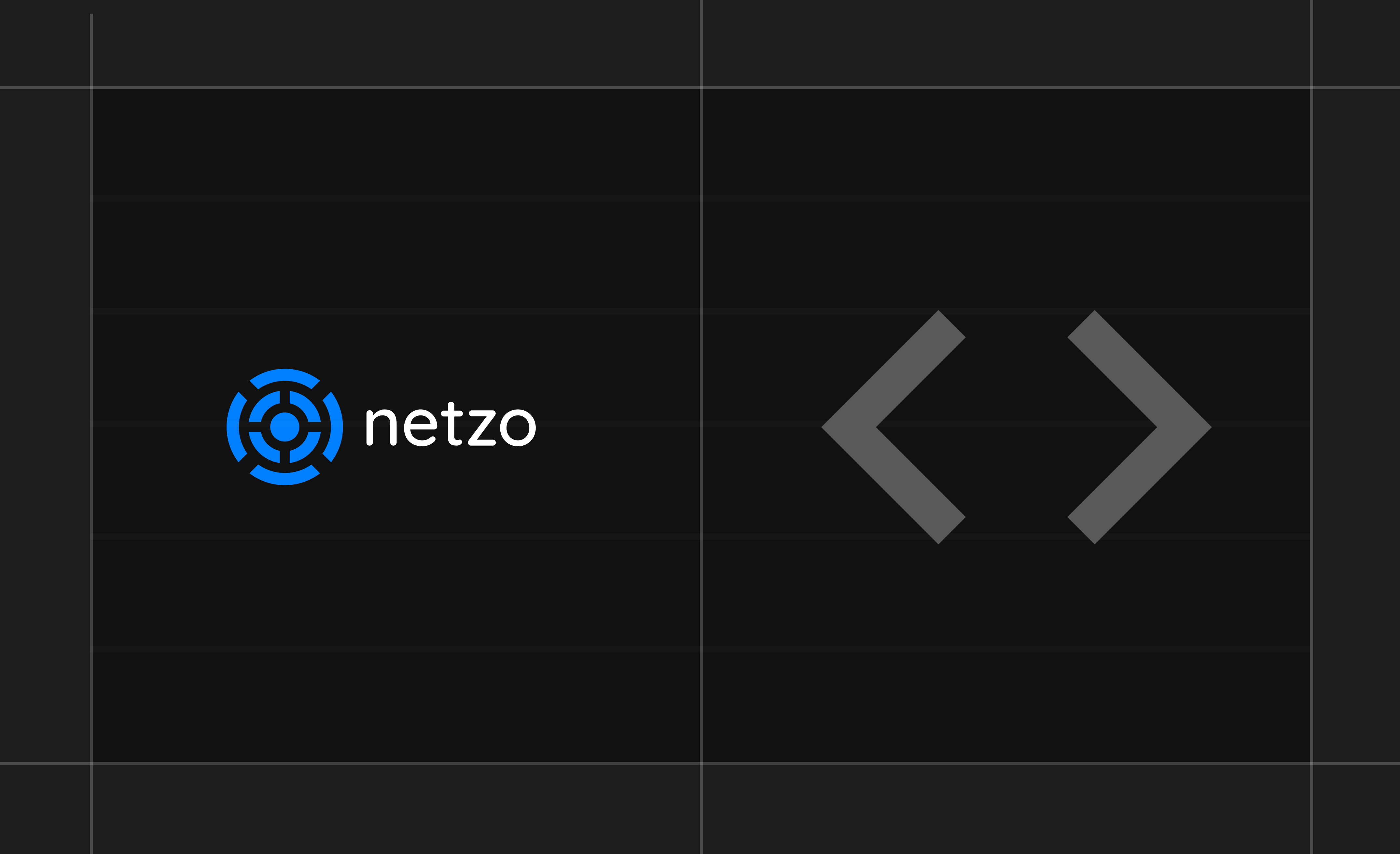Mitigating Risks when Developing from Scratch

Netzo redefines enterprise application development, offering speed without compromising flexibility.
If you've made it this far, you probably know the term "internal tools," have reached the limits of your no-code/low-code tools, or believe that custom development is the only way to get a solution perfectly tailored to your needs. In any case, you're in the right place.
🏗️ Developing from Scratch
When we talk about custom or traditional development, we mean creating applications from scratch, i.e., programming solutions from a code editor. This from-scratch approach provides maximum flexibility and customization, allowing skilled engineers to design application architectures with a combination of advanced technologies.
This incurs an economic cost and high effort in both implementation and ongoing maintenance, as experienced developer teams are required.
For companies in the software and technology sector, this approach is irreplaceable, as developing their business tool is the core business they offer to their clients.
Core business software is part of the company's main activities, meaning they are directly the product or service with which the company profits. For example, an accounting system, a CRM, or even an ERP.
However, developing other support tools from scratch, across any industry sector, can pose an unnecessary and costly risk.
"Traditional software development only makes sense when it comes to the company's core business."
🏢 In-House Development
If the above is true, why do many companies decide to develop their own solutions in-house? And what kind of solutions do they develop?
The first answer is simple, because there are no viable alternatives to meet their needs and support their operations.
The second answer is more profound. Companies develop support tools as a strategic decision to obtain solutions as unique as their processes and needs, instead of buying off-the-shelf, gaining a series of benefits such as:
- Control over development and its evolution
- Control of industrial and intellectual property
- Support for proprietary processes
- Differentiation from competitors and increased competitive advantages
- Scalability according to growth needs
- Integration with existing and future systems
- Centralization of information
- Long-term cost reduction
Support tools are not part of the company's core business, but they are necessary to support its operations. For example, an inventory management system, human resources management, project management, etc.
❌ Challenges of In-House Development
For companies not belonging to the software and technology sector but requiring customized solutions, this poses a dilemma, as they must either create in-house engineering departments or resort to outsourcing.
Neither option is inherently bad; on the contrary, these companies are on the right path, developing their competencies with in-house solutions. However, both decisions come with a series of challenges that directly impact the quality of results and compliance with established requirements, such as:
- Search and retention of qualified talent
- Security and compliance concerns
- Definition of requirements and completeness of solutions
- Quality and standardization of developments
- Reproduction of practices and standards
- Risks due to property and operation in the hands of third parties
- Dependence on knowledge for daily operation
- Management of infrastructure and solution architecture
These challenges are largely caused by the variability of human factors, such as experience, knowledge, methodologies, etc. For example, code quality depends on the skills of the development team, which can vary over time, staff turnover, or the agency in use.
Support tools are an operational necessity, so functionality, quality, and implementation speed take precedence over the hyperflexibility (in architecture and technology selection, but not in capabilities) that comes with developing from scratch. For these reasons, developing from scratch is not the best option for companies in any sector developing support tools, as it poses unnecessary and costly risks.
"Developing support tools from scratch entails unnecessary and costly risks, affected by the variability of human factors."
✅ Mitigating Risks and Challenges with Netzo
Netzo is a comprehensive solution for enterprise application development, allowing companies to create customized solutions without compromising the significant benefits of developing in-house from scratch.
Netzo stands out as an option of the same degree of versatility, with less effort, and offers a series of differentiating benefits over developing support tools from scratch. The solution combines paradigms, modules, and functionalities, considered of minimal added value but integral to robust, secure, and quality support solutions. This reduces the barrier to entry and mitigates risks associated with in-house development, accelerating the delivery of top-quality solutions, for example:
| Challenges and Risks | Develop from Scratch | Netzo |
|---|---|---|
| Search and Retention of Qualified Talent | ❌ Need for multiple qualified profiles. | ✅ Provides a framework with industry best practices, reducing dependencies. |
| Security and Compliance Concerns | ❌ Dependency on specialized programmers. | ✅ Incorporates best practices and preconfigured functionality for secure solutions. |
| Definition of Requirements and Totality of Solutions | ❌ Complex integration and difficulties. | ✅ Reactive functionality and easy integration into reusable components. |
| Quality of Solutions | ❌ Quality dependent on team skills. | ✅ Consistent code quality through components, critical functionality, and reproducible best practices. |
| Reproduction of Practices and Standards | ❌ Dependency on individual methodologies. | ✅ Independence from individual developer methodologies through a framework. |
| Risks of Ownership and Operation in the Hands of Third Parties | ❌ Risks when relying on third parties for operation. | ✅ Ownership and operation of solutions in the hands of the company, independent of third parties. |
| Excessive Knowledge for Daily Operation | ❌ Requires continuous technical training. | ✅ Easy-to-manage solutions, even for non-technical administrators. |
| Infrastructure Management | ❌ Requires continuous maintenance. | ✅ No tedious configurations, rapid deployment, global scalability. |
Netzo helps companies mitigate the risks and challenges associated with developing from scratch, offering differentiating benefits without compromising the necessary versatility of in-house support tools.
"Netzo mitigates the risks and challenges of consistency in quality, security, implementation speed, and costs associated with developing support tools from scratch."
🧐 Conclusions
In this article, we addressed the challenges and risks that companies face when developing from scratch. We explained why many companies choose in-house development, the challenges they face in doing so, and how Netzo provides advantages when looking to develop support tools.
We emphasize that Netzo helps mitigate the risks and challenges associated with developing from scratch, offering a comprehensive solution of components, modules, functionalities, and best practices within an established framework, providing total flexibility without compromising the versatility, speed, and quality of solutions.
Netzo redefines enterprise application development, offering speed without compromising flexibility, increasing the reproducible quality of solutions.
